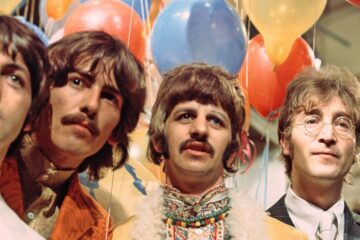Nothing about The Beatles’ recording sessions was supposed to be “normal”. Although many people had tried to take their music in different directions before them, the Fab Four had no problem turning their studio into a playground, especially when they entered their psychedelic period. They were on the cusp of brilliance in the pre-Sgt Pepper era, but Paul McCartney got more than they thought they could out of one of the session players when laying down this classic.
Then again, McCartney probably didn’t realise what he got himself into when writing some of his best ballads. Even though George Martin was there to be his musical translator, it wouldn’t be easy trying to find a melody he heard in his head and somehow find a way to transpose it to an instrument he could not play.
Looking at where they were going for some of their ballads, though, that hardly mattered. McCartney’s suggestions for how the strings should sound on ‘Yesterday’ is what gave them their signature melancholy, and when instructing the orchestral players to sound biting on ‘Eleanor Rigby’, he created the kind of harrowing backing track that sounded closer to a musical score rather than a pop song.
If ‘Eleanor Rigby’ started him working on different sounds, ‘For No One’ is the perfect melding of both worlds. McCartney does provide a decent backing track on piano, but outside of his voice and minimal percussion by Ringo Starr, the real star of the show is the French Horn player, who provides the perfect melody to go along with the melancholy of the tune.
There was only one problem: the whole thing was out of the range of the instrument. Even though there was no feasible way for session musician Alan Civil to reach that note, McCartney knew that all he needed was a little bit of courage to hit the note.
Despite asking for it to be changed or to use another session musician, McCartney remembered thinking of the note as a challenge for Civil, saying, “We came to the session, and Alan looked up from his bit of paper: ‘Eh, George? I think there’s a mistake here – you’ve got a high F written down. Then George and I said, ‘Yeah,’ and smiled back at him, and he knew what we were up to and played it. These great players will do it.”
Regardless of how much effort he put into the final solo, the whole thing feels perfect for the song. Even though Civil may have had to go through hell trying to get the right note, hearing it in context provides the perfect backdrop to a relationship going sour, being the musical equivalent of putting a happy face on a sad situation.
But even if it was impossible, it was all in a day’s work for The Beatles. They had started making a living out of turning their dreams into a reality, and it didn’t matter if the tune was out of any instrument’s range. If it sounded right, they were going to move the Earth and moon if that meant them hearing what they heard in their head.




